CIA Sponsored Terror, Civil Liberties, Criminalizing Dissent, Gaza, Guantanamo, Human Rights, Military Tribunal, Prison Industry, Surveillance, Targeting Muslims, Torture
Podcast: Play in new window | Download
Updates
——
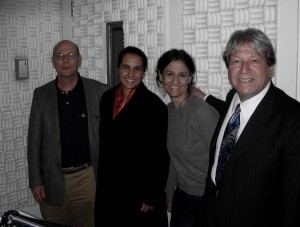
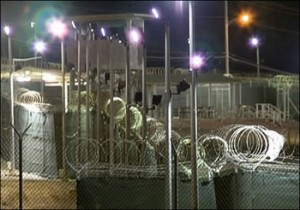
Michael Ratner Marks CCR Case Rasul v Bush: Courage To Stand Up At The Right Time
In early 2002, the Center for Constitutional Rights filed two habeas petitions, Rasul v. Bush and Habib v. Bush. This challenged the U.S. government’s practice of holding foreign nationals captured in connection with its war on Afghanistan and al-Qaeda in indefinite detention. This is without counsel and without the right to a trial or to know the charges against them. Michael Ratner then explains the timeline of how the Supreme Court, over the administration’s objections, agreed in November 2003 to hear the cases of the Guantanamo detainees, and also the case of al Odah v. Bush. This week’s anniversary marks the historic ruling on June 28th, 2004 that detainees have access to U.S. Courts to challenge their detention.
Attorney Michael Ratner:
- We won that in June 28, 2004. We won it in a 6-3 decision. The Center for Constitutional Rights was the only human rights organization on the case. The only one willing to take that case.
- Many of my colleagues, not me, thought that would be the end of Guantanamo (Bay Prison)
- There are still 149 people left in Guantanamo, over half of them have been cleared for release. The reason I want to mark this is because it talks about a struggle that in some ways was successful and in some ways not successful.
- It also talks about the courage of these lawyers that started these cases in the thick of the most anger in the country and . . . fears that we would lose our fund raising.
- We thought at that time, as I said some of our friends, said that we would close Guantanamo. But since that time there’s been incredible stubborn resistance by all 3 branches of government.
- Bush first, then Obama, despite promises has failed to live up to them, promises to close Guantanamo. The courts are therefore useless now in this.
- Congress is going retrograde at a speed unimaginable, trying to ban every transfer for the rest of our days from Guantanamo.
- Within 2 months of the 911 attacks, President Bush issued Military Order Number 1. It’s November 13, 2001 Military Order, I thought a coup de tat happened in the country. It said the president had the authority to pick anyone, anywhere in the world. Hold them indefinitely, incommunicado and abolish habeas corpus.
- We tried to get other human rights organizations to do it. No one else to their shame would come aboard with the Center for Constitutional Rights.
- The Center for Constitutional Rights could’ve gone under for this. Let me be clear. It was a much smaller institution. It didn’t have that much funding. There was a high risk that we were going to get cut off completely.
- January 11, 2002, they take the people, the first plane load to Guantanamo.
- We never expected the Supreme Court to take the case in 2003. When it finally did, it accepted the case. It was argued in April 2004. It was decided in our favor on June 28.
- We then put out a call for other lawyers to join us. Over a hundred lawyers joined us immediately. 600 within a year or two. We then created what I call a mass movement of lawyers to fight this.
- As a result of the 2004 ruling, our first attorney went down (to Guantanamo) Gita Gutierrez. The big thing that Gita’s visit represented is that we found out about torture at Guantanamo.
- You begin to understand when a government does incommunicado detention in an offshore facility that doesn’t have any court review, there’s a reason, and the reason is almost entirely torture.
- There’s been no prosecution. Obama has given them all a huge pass unfortunately. It’s really damaging because what it has done for torture is its saying, torture isn’t necessarily illegal, Obama claims it’s illegal but he didn’t prosecute anybody.
- So, next time we have another “scare” like this people will say it’s a political issue, we can torture, it works, etc.
Guest – Law and Disorder Co-host Attorney Michael Ratner, President Emeritus of the Center for Constitutional Rights (CCR), a non-profit human rights litigation organization based in New York City and president of the European Center for Constitutional and Human Rights (ECCHR) based in Berlin. Ratner and CCR are currently the attorneys in the United States for publishers Julian Assange and Wikileaks. He was co-counsel in representing the Guantanamo Bay detainees in the United States Supreme Court, where, in June 2004, the court decided his clients have the right to test the legality of their detentions in court. Ratner is also a past president of the National Lawyers Guild and the author of numerous books and articles, including the books Who Killed Che? How the CIA Got Away With Murder, The Trial of Donald Rumsfeld: A Prosecution by Book, Against War with Iraq and Guantanamo: What the World Should Know, as well as a textbook on international human rights.
——-
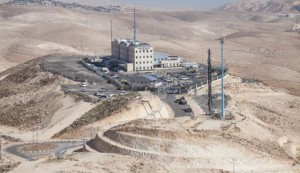

Israel Increases Rate of Palestinian Home and Structure Demolition
In the past few months, the Israeli government has stepped up its campaign of Palestinian home demolitions, specifically in the E1 area between Jerusalem and the Maale Adumim settlement. United Nations reports show 231 Palestinians had been displaced from their homes in early 2014. This is at a much quicker pace than 2013. Remember the demolishing of homes include livestock pens, fences, water reservoirs, schools, all vital to the livelihood and communal life of Palestinians. The Israeli Committee Against House Demolitions estimates since 1967, nearly 29 thousand Palestinian homes and livelihood structures were demolished in the Occupied Territories. However, at the same time the Israeli government has announced the construction of thousands of homes and buildings in the settlements of the West Bank and East Jerusalem.
Dr. Jeff Halper:
- This is an area called E1, that’s the planner’s jargon.
- The significance of E1 is that it closes the last north south corridor the Palestinians have from the north of west bank to the south since they can’t come through Jerusalem.
- Even the United States say if Israel build in E1 and closes that corridor that’s the end of the two state solution.
- This guy Irwin Moskowitz who is a big casino out in California gives millions to the settlements. He bought for the Israeli government a 10 million dollar state of the art police station. It’s the main police headquarters for all the West Bank that is in the E1.
- There’s a whole infrastructure of roads leading to Jerusalem, but Israel has still refrained from actually building. The plan is to build 3,500 housing units that absolutely, thickly closes that corridor to Palestinians.
- The 2 state solution is gone but this (building of E1 area) would be an absolute measure of the ending of the 2 state solution.
- We’re trying to mobilize international civil society against the occupation. The occupation is not going to end because the Israeli public rise up and end it.
- They’re living the good life, they’re profiting from the occupation especially from the point of view of testing and developing and selling weapons systems tested on Palestinians.
- And the governments of the world aren’t doing their job. Governments manage conflicts, they don’t resolve conflicts.
- So I’m here in the United States to try to speak to activist groups, church groups because the churches here have a very strong moral voice.
- We’re dependent on the Palestinians for leadership on where to go next. Not being Palestinians, we can’t tell them what the solution is.
- I think its urgent we formulate a one state solution. A one democratic bi-national state.
- I think there has to be a bi-national component in which both peoples have a sense of self expression and limited self determination within the common country.
- You have to create structures of sharing power.
- I think the Palestinians would have the ability to achieve a fair amount of parity with Israel within a short amount of time if we create this consociational type of state.
- Israel is beginning to be more and more of an albatross around the American’s neck.
- Operation My Brother’s Keeper had nothing to do with these kids who disappeared. It was a stand alone operation that used the disappearance as a trigger for being launched. The whole idea was to crack down on Hamas, to weaken the PA to keep it dependent on Israel.
- I think what’s happening is we’re in the midst of collapse.
- Jeff@ICAHD.org
Guest – Dr. Jeff Halper, co-founder and Director of ICAHD, the Israeli Committee Against House Demolitions. He was born in 1946 in Minnesota and emigrated to Israel in 1973. Since then he has been a tireless advocate for justice and civil rights for all Israelis and Palestinians. He spent ten years as a community worker in Jerusalem aiding low-income Mizrahi families. He co-founded ICAHD in 1997 to help resist Israel’s strategy of house demolitions in the Occupied Palestinian Territory. He is the author of three books, ‘Between Redemption and Revival: The Jewish Yishuv in Jerusalem in the Nineteenth Century’, ‘An Israeli in Palestine: Resisting Possession, Redeeming Israel’, and ‘Obstacles to Peace: A reframing of the Palestinian – Israeli Conflict’. In 2006 Dr. Halper was nominated for the Nobel Peace Prize, citing ICAHD’s work “to liberate both the Palestinian and the Israeli people from the yoke of structural violence” and “to build equality between their people by recognizing and celebrating their common humanity.”
—————————————————————————-

Please help support Law and Disorder, the show is now a sponsored project of Fractured Atlas, a non-profit arts service organization. Contributions for the charitable purposes of Law and Disorder must be made payable to Fractured Atlas only and are tax-deductible to the extent permitted by law.
Afghanistan War, CIA Sponsored Terror, Civil Liberties, Criminalizing Dissent, FBI Intrusion, Guantanamo, Habeas Corpus, Human Rights, Iraq War, NSA Spying, Political Prisoner, Surveillance, Targeting Muslims, Torture, War Resister
Podcast: Play in new window | Download
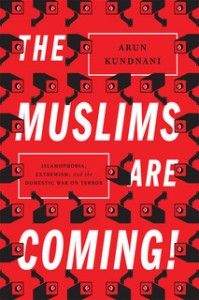
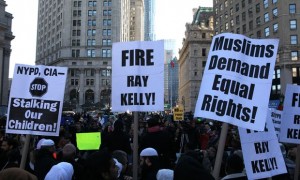
The Muslims Are Coming
Since the so called war on terror, thousands of innocent Muslims have been entrapped, surveilled, and their communities infiltrated while spending untold resources in search for the radicalized terrorist. In Arun Kundnani’s recent book titled the Muslims Are Coming, he carefully looks at the ideologies and strategies of law enforcement used to create the domestic war on terror. He unveils the disturbing processes of radicalization theories and racial profiling followed by law enforcement.
Arun Kundnani:
- There wasn’t any reflection of what the political causes might be of 9/11 or the political context that might give rise to Al-Qaeda.
- That discussion was basically censored at least in the United States.
- The war on terror has basically failed.
- Radicalization is the chief lens that security officials in Western government lock up Muslim populations.
- The idea of radicalization is that there’s this kind of ideology out there that turns ordinary Muslims into terrorists.
- The FBI and the police department both have the same model of radicalization which they claim tells you the process that someone goes through from being an ordinary member of the public to becoming a terrorist.
- Within that there are various indicators such as behavior or things that people might say or believe that are supposed to be signs that someone is traveling on this path to becoming a terrorist.
- This provides the basis for the very aggressive practice of surveillance that we’ve seen from both of those law enforcement agencies.
- It enables them to have a frame of reference to intervene within Muslim populations within the United States, to tackle the ideology that they see is the root driver for this.
- There are 4 stages in this model. Growing a beard, wearing Islamic clothing, changing the mosque that you attend, being active in a pro-Muslim in a social or political group.
- They often correspond to expression of political opinion.
- The FBI as of 2008 had 15,000 paid informants on its books. That’s a huge number given that half of the FBI’s budget is given to counter-terrorism. The sting operations using informants are the key method of dealing with this.
- The Stasi in Germany had one spy for every 66 East German citizens. It’s that kind of ratio that you can talk about a totalitarian system of surveillance.
- Muslims in America are probably experiencing the same level of surveillance that East Germans faced under the Stasi.
- The liberal take on the war on terror is not the same as the neoconservative take.
- As a Muslim you’re potentially bad and you need to prove that you’re not by the kind of ideology you express. That’s characterized the Obama period in the war on terror.
- The way that the word terrorism or the word extremism or radicalization works is that is serves to criminalize and demonize people who have radical political opinion, irrespective if they’re involved in any kind of violence.
- The structures of surveillance that have been set up in the war on terror, get recycled for all kinds of other purposes.
Guest – Arun Kundnani writes about race, Islamophobia, political violence, and surveillance. His latest book The Muslims are Coming! Islamophobia, extremism, and the domestic War on Terror was published by Verso Books in March 2014. Born and bred in London, he moved to New York in 2010 on a fellowship with the Open Society Foundations and now lives in Harlem. He is the author of The End of Tolerance: racism in 21st century Britain, which was selected as a New Statesman book of the year in 2007. A former editor of the journal Race & Class, he was miseducated at Cambridge University, holds a PhD from London Metropolitan University, and teaches at New York University
———
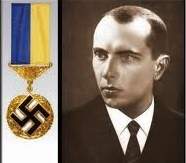
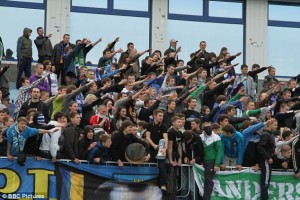
Ukraine’s Neo Nazis
We look at Ukraine’s neo-Nazis and Stepan Bandera and the legacy of World War II. Every important ministry in the Ukraine is now held by ultra-nationalists. The Ministry of Education, social policy, policing, prosecution and national defense are all headed up by people whose party is a direct descendant of the Stepan Bandera movement in the Ukraine during World War II. Bandera and his movement were responsible for the genocide of more than 500 thousand including Poles, Ukrainians and Jews. This fact is played down by the U.S. government, the mainstream media in the United States, the state of Israel and its defenders amongst the Jewish establishment including Abe Foxman of the Anti-Defamation League.
Joel Kovel:
- I think its important to recognize this utterly illegitimate US puppet government I think in large part because it doesn’t have any standing for the Ukrainian people as a whole – has to be defended by neo-Nazi elements which aren’t enormously plentiful, but plentiful enough and they will do the bidding of their masters.
- It started (Odessa, Ukraine) as a quarrel in a soccer stadium, and moved to Odessa. Odessa is an extremely important town it was one of the centers of world Jewish culture for a long time, still has 30 thousand Jews in it.
- The Ukrainian loyalists overwhelmed the other people and drove them into this building, they set fires within the building which led to a hideous massacre.
- One on one violence but also people jumping out of the windows, smoke inhalation.
- Watching it on youtube you saw the total savagery and unspeakable brutality of these thugs, they were laughing, having the time of their lives.
- There were police around, military around, they did nothing to stop this.
- Utterly mystified and denied by the mainstream media, including the main springs thereof, including the Wall Street Journal, the Washington Post, the New York Times.
- My parents were both born in the Ukraine. In the early years of the last century, one third of the Jews in the world lived in the Ukraine.
- You have a blood strewn, contentious history marked by an enormous amount of hatred and vindictiveness. I think all nationalisms are pathological frankly.
- Ukrainian nationalism was particularly virulent. We’re dealing with another brand of ultra-nationalism with the state of Israel, and they’re not unconnected with all this.
- Fascism being a right wing alliance between large bourgeois and nationalist forces using some kind of mythic or racist ideology to legitimate itself.
- Ukraine: there’s never been a solid national identity there’s a tremendous complex mixture of things.
- There’s a book called Organized Antisemitism in Contemporary Ukraine: Structure, Influence and Ideology.
- Of course the US thinks they’re manipulating the puppets so they can control them. You go down that road, there’s going to be a lot of tragedies as the puppet turns on the master.
- The number of Rabbis quoted as saying we’re getting ready to evacuate, we have plans. We’re ready to go in a half an hour. We’re afraid its going to happen again. Meanwhile, this Foxman is saying, don’t worry.
- New York Times had a headline about 3 or 4 weeks ago how this was all overblown Ukraine’s Jews say that Putin not antisemitism is the problem.
- That’s the headline in the New York Times. How could they do that?
- We need a massive onslaught against the program of lies and deception that is being waged by our national media in total lockstep with the imperial interest of the United States. I’ve never in my life seen journalism sink to such an abyss as it has and in the very least this is a front that we can occupy.
- It means a lot because the American don’t want this to be happening. This is something that our power system. One front is the ruthless critique of the media and the lies that our government is putting out.
Guest- Joel Kovel, scholar and an activist. In the former capacity he has published nine books and over a hundred articles and reviews. His books include White Racism, which was nominated for a National Book Award in 1972; A Complete Guide to Therapy; The Age of Desire (in which his work in the psychiatric-psychoanalytic system is detailed); Against the State of Nuclear Terror; In Nicaragua; The Radical Spirit; History and Spirit(1991) – Committee for Open Discussion of Zionism
——————————————————————

Please help support Law and Disorder, the show is now a sponsored project of Fractured Atlas, a non-profit arts service organization. Contributions for the charitable purposes of Law and Disorder must be made payable to Fractured Atlas only and are tax-deductible to the extent permitted by law.
CIA Sponsored Terror, Civil Liberties, Criminalizing Dissent, Guantanamo, Habeas Corpus, Human Rights, Political Prisoner, Supreme Court, Surveillance, Targeting Muslims, Torture, Truth to Power, War Resister
Podcast: Play in new window | Download
Updates:
——

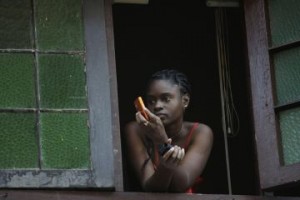
U.S. Agency Infiltrates Cuba With Fake Twitter Account
Consistent with the NSA’s deceptive strategies in creating fake social networks, the U.S. Agency for International Development masterminded the creation of a “Cuban Twitter: The communications network was designed to undermine the communist government in Cuba. It was financed through foreign banks and constructed through shell companies. The Associated Press learned that the project lasted more than 2 years and had tens of thousands of followers. The content initially was non political such as soccer, music and weather, but it was learned that once a critical mass was reached, political content would be introduced to organize “smart mobs” that could trigger a Cuban Spring.
Jane Franklin:
- When Obama speaks about Cuba you have to read between the lines always and be very careful about what you think he’s saying.
- He said the notion that “the policies we put into place in 1961 would somehow be as effective as they are today in the age of the internet and google and world travel doesn’t make sense.
- We recognize that the aims are always going to be the same and what we have to do is continually find new mechanisms and new tools to speak out on behalf of the issues that we care so deeply about.”
- That’s what he was considering back in November and of course before that this plan to use creative and thoughtful methods to infiltrate Cuba and try to create what the Associated Press calls “smart mobs” which could lead to the downfall of the Cuban government.
- It was called ZunZuneo and was budding in 2009, then it was launched full scale in 2010 with a campaign to use a half a million cell phone numbers that U.S. aids have gotten and sent what they call blasts to those half a million receivers.
- Those people would be told that they could sign up for this program and get news and so on. News that at first would be trivial, and then gradually according to the documents that the AP has – this would increase until they could develop smart mobs – that is street protest that would help lead to the overthrow of the Cuban government.
- They used foreign countries to disguise where the messages came from. They set up a bank account in the Cayman Islands which is a tax haven to use that for money.
- When there was a concert in Havana in 2009 which is described in the report by the AP and the US Aid people blasted the cell phones with questions.
- One of the questions was do you think the two bands that were not in favor of the Cuban government should be on the stage with the band that’s there today?
- If you answered yes, you were what’s called “receptive” to their ideas.
- A few months later they launched this full scale campaign and eventually they had 60 thousand receivers using their program. That’s not many in the population of Cuba. It was a failure and they closed it down.
- They were paying tens of thousands to Cuba Cell, which regulates the cell phones.
- They get millions of dollars from Congress every year to create such programs and try to overthrow the government of Cuba which they’re supposed to do according to U.S. law The Helms-Burton Act requires that.
- It (the report) says that a researcher from Mobile Accord which was the main private contractor was building a mass database about the Cuban subscribers including gender, age, receptiveness and political tendency.
Guest – Jane Franklin is a historian, she has written two books about Cuba: Cuban Foreign Relations 1959-1982 (Center for Cuban Studies, New York, 1984) and Cuba and the United States: A Chronological History (Ocean Press, Melbourne, Australia, 1997). She is co-author of Vietnam and America: A Documented History (Grove Press: New York, 1985, enlarged edition 1995). Her chronology of the history of Panama is in The U.S. Invasion of Panama (South End Press: Boston, 1991). She has published numerous articles, poems and film reviews and has lectured extensively about Cuba, Vietnam, Nicaragua, El Salvador, and Panama. She is a frequent radio commentator about Cuba.
—–
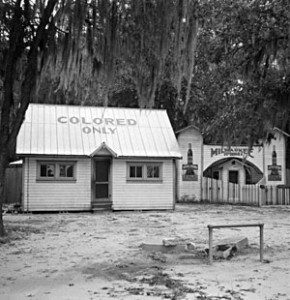
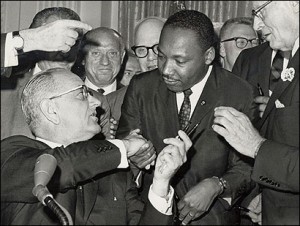
50th anniversary of the Civil Rights Act
This year marks the 50th anniversary of the Civil Rights Act, the most sweeping civil rights legislation since Reconstruction. The Civil Rights Act prohibits prohibits discrimination of all kinds based on race, color, religion, or national origin. The law also provides the federal government with the powers to enforce desegregation. In a speech on June 11, 1963, President John F. Kennedy unveiled plans to pursue a comprehensive civil rights bill in Congress, stating, ‘‘this nation, for all its hopes and all its boasts, will not be fully free until all its citizens are free.”
Professor of Law John Brittain:
- Yes, I do believe Lyndon Johnson deserves credit, although he had such allies like Martin Luther King. They released some of the unacknowledged tapes by President Johnson in his office in talking with Dr. King both about the 1964 Civil Rights Act as well as he went on to usher in the 1965 Voting Rights Act.
- These acts were a response to a condition on the ground, and the condition was apartheid in the United States, in particularly in the South, but as Malcolm X said anything below the Canadian – US border was the South.
- We’re also celebrating the 50th anniversary of the Summer in Mississippi.
- The demonstrations in the streets no doubt had an effect upon the Congress in passing the 1964 Civil Rights Act to shall we say, let some of the steam out of the kettle.
- He (LBJ) came out of the Lone Star state, the only state that came into the union as a slave state and the state that promoted the white primary, that unless you were white you couldn’t vote in the primary.
- The Missouri Compromise we’d have slave states and free states. After the civil war we’d have a great period of radical Republican reconstruction in the South to give the black former slave equal rights but that died by the 1890s and ushered in a period what we call Jim Crow.
- Coming up to that point in the 1960s and with the riots, to his credit LBJ, notwithstanding that dark cloud over his head, that war in Vietnam which Dr. King called immoral, unjust and illegal and took a lot of criticism for daring to talk about international affairs and indeed talk about a war.
- The minute lawyers went to work in representing the poor, they were cut off by restrictions. The war on poverty and neighborhood legal services was started in 1965-66 but a decade later it was cut off at the knees.
- Johnson said when he was first presented with the idea of legal services – hell I’m not going to pay lawyers to sue the government and win but he was convinced otherwise.
- By the time 65 came around and they created this compromise and started this new federal agency funding called Legal Services corporation to take the political veto out of governors but they had to agree to restriction.
- Legal Services lawyers couldn’t take criminal cases, abortion cases, agitation for labor rights cases, immigration cases, school desegregation cases.
- Just last year 2013, on the eve of celebrating the 50th anniversary of the Voting Rights Act, Chief Justice John Roberts and the right wing on the Supreme Court – Shelby County v Eric Holder
- The Civil Rights Act of 1964 was the same Civil Rights Act of the 1860s. The only difference is they based on a different constitutional provision, not the 14th Amendment which gives Congress the right to enforce the Constitution to provide equality for the former slave, now African American, but instead in 1964, they based it on commerce clause by saying that any segregation interfered with interstate commerce. The act in essence provided for equal accommodation.
- It broke the back of Jim Crow segregation where an African American could go shop, go eat, go live and go play and go to any access in parts of America.
- It would later take the 1968 Fair Housing Act in order to provide equal housing.
- The 1964 Civil Rights Act gave Congress, gave the Justice Department, the Department of Education too, and others the tools to go in and to stop Jim Crow or “colored only” segregation in our mainly southern states.
- That was the same Justice Department that went on to enforce 1964 Civil Rights Act by bringing legal claims against hotels and restaurants, government facilities that continued to bar blacks from equal access.
- Kennedy said where are the lawyers? By current tort terms, he falsely imprisoned them in the White House and told them they couldn’t leave until they created an organization and out of that grew the Lawyers Committee and immediately they went down to Jackson, Mississippi and created the Jackson Litigation Office.
- I happen to come along in 1969 fresh out of law school to become one of the lawyers in the Jackson litigation and throughout the history of the lawyers committee. The only national legal organization dedicated to equality for African Americans and other people of color have gone on to litigate in education, in voting, in housing and employment discrimination as well as criminal justice.
Guest – Professor John Brittain, tenured professor of law at the University of the District of Columbia, David A. Clarke School of Law. In the past he served as dean of the Thurgood Marshall School of Law at Texas Southern University in Houston, was a veteran law professor at the University of Connecticut School of Law for twenty-two years and was the Chief Counsel and Senior Deputy Director of the Lawyers’ Committee for Civil Rights Under Law in Washington, DC, a public interest legal organization started by President John F. Kennedy to enlist private lawyers to take pro bono cases in civil rights.
———————————————————————-
Please Help Support Law and Disorder

Law and Disorder is now a sponsored project of Fractured Atlas, a non-profit arts service organization. Contributions for the charitable purposes of Law and Disorder must be made payable to Fractured Atlas only and are tax-deductible to the extent permitted by law.
CIA Sponsored Terror, Civil Liberties, Criminalizing Dissent, Extraordinary Rendition, Guantanamo, Human Rights, Political Prisoner, Prison Industry, Surveillance, Torture, Truth to Power, War Resister
Podcast: Play in new window | Download
Updates:
——
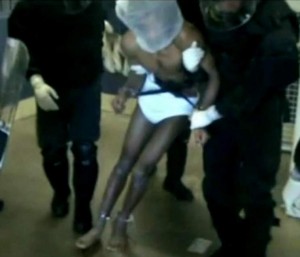
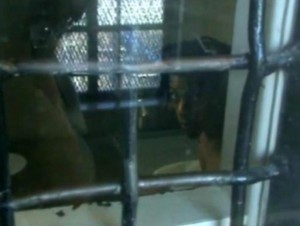
The Dallas 6: Abuse In Solitary Confinement
In April of 2010, a group of inmates locked in solitary confinement at SCI Dallas prison in Pennsylvania were suffering so much abuse and brutal treatment by prison guards they had placed their bedding over the window of their cell doors to attract attention of the prison administrators. Instead of receiving assistance, the inmates were brought up on riot charges. Last December the inmates known as the Dallas 6 defended themselves and presented testimony describing the details of their abuse in solitary confinement.
Shandre Delaney:
- This case, the Dallas 6, began in April 2010. These men were all in the RHU at SCI Dallas, in Dallas PA.
- The RHU is the restrictive housing unit, its an acronym for solitary confinement.
- All of these men had been victims of abuse and torture during their stay in solitary confinement.
- The Dallas 6 are Andre Jacobs, Anthony Kelly, Anthony Locke, Dwayne Peters, Derek Stanley and my son Carrington Keys.
- Most of these guys went into solitary for minor infractions, maybe to stay 60-90 days. My son stayed in there for 10 years, and I think all of the other guys about the same.
- These guys were jailhouse lawyers. These guys were people who spoke up and sent word to the outside about what was going on in solitary confinement.
- Once you do that – they call it misconduct, which are write ups, they’ll give you false write ups, and all types of things just to keep you in there longer.
- The cells are 6X9. In solitary, they might have a window to the outside. There is a bunk that they sleep on. There is only a slot for food to come in and out.
- You’re supposed to come out of your cell for one hour a day. They may get a shower 2 or 3 times a week.
- They lied to me for years and told me he wasn’t allowed visits. I later found out that they’re allowed one visit per month.
- The group that I work for Human Rights Coalition, some of the information that was sent from SCI Dallas, a 93 page report was written called Resistance and Retaliation.
- They sent a copy back in (to SCI Dallas) they didn’t mark out the guys’ names, so once the guards got a hold of this, and saw the guy’s names, they started one by one beating guys.
- They took one guy and put him in a restraint chair. You’re only supposed to be in the restraint chair for 2 hours, they kept there over night.
- They (the guards) told the guys (Dallas 6) we’re comin for you. In order to bring attention from a lieutenant or a superior officer, you have to cover your cell window.
- They covered their cell windows. The guards put on riot gear and one by one they beat these guys very bad.
- It’s all on video tape. They tasered a lot of the guys on their genitals.
- They have you like a hog or something, I saw it on the video.
- They cut their clothes off and left them for hours in cages.
- May 5, 2014 is supposed to be the official trial date. The official trial date has been going on for 2 years.
- I was praying every night hoping the phone didn’t ring and they tell me they killed him.
- They took out to shower and threw him down the steps and broke his nose, they busted his teeth out with a stick before.
- They put glass in his food.
- HRCoalition.org
- Dallas 6 Blog
- Petition to Indict Luzerne County Officials
- Summary in Support of Petition to Indict
Guest – Shandre Delaney, a powerful activist with HRCoalition and the mother of Carrington Keys, one of the Dallas 6.
—–
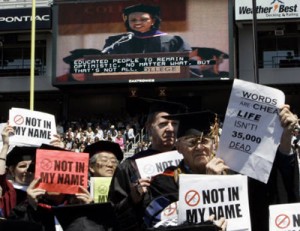

Rutgers University Plans to Give Condoleezza Rice Honorary Degree
Students and faculty at Rutgers University have rejected the idea to invite former Secretary of State Condoleezza Rice to speak at this year’s commencement ceremony and receive an honorary degree. The Board of Governors in February of this year unanimously voted to award Rice the invite for a fee of 35 thousand dollars. They also voted to give the national security adviser under former President George W. Bush an honorary degree. Resolutions signed by the university faculty and staff calls for Rice to be disinvited.
Professor Deepa Kumar:
- Historically our process at Rutgers University has involved having 20 some faculties, students, involved in the process of selecting the commencement speaker, typically by canvasing students and canvasing faculty and then making a recommendation to the president as to who to invite.
- When president Barchi came to your university in 2012 he completely violated this open and democratic process, formed a committee of 6 people including himself. Then they decided to go ahead an invite Condoleezza Rice.
- We believe that this was actually politically motivated. What suspect is that Chris Cristi who was riding high at that time in 2012, before bridge-gate, very likely wanted to have Condoleezza Rice as Vice Presidential candidate when he runs.
- So far we have taken out a petition drive, the students have their own petition drive, hundreds of people have signed up. We’ve also talked about holding a protest outside should our efforts fail.
- The last time Dr. Rice was invited to be a commencement speaker was at 2006 at Boston College, when everybody turned their back to her when she started to speak.
- Condoleezza Rice was very much a part of the systematic lying to the American public and quite frankly we at Rutgers teach our students to ethical to be responsible citizens.
- At Rutgers we have a 44 percent minority student enrollment. It’s a very diverse school and I welcome African American women as commencement speakers but I think there are better people like Anita Hill or Angela Davis.
- In 2002 we know from a Senate Committee Intelligence Report of 2009 that when Rice was chair of the National Security Council she gave a verbal approval to then CIA director George Tenet to go ahead and use enhanced interrogation techniques.
- She’s been quite steadfast in defending the use of torture. She gave a speech at Stanford University where she argued that if torture is authorized by the president then it doesn’t violate the Geneva Convention against torture.
- Commencement at Rutgers – May 18, 2014.
- Senator Feinstein called the use of torture a dark chapter in the history of this country.
- Clearly torture is a violation of international law and the Geneva Convention and I think to confer a Doctor of Law degree to someone who has been intimately connected with this “dark chapter” in our history I think is a serious embarrassment for Rutgers University.
- I’m really proud to be among the hundreds of faculty members and students who are actually standing up against this to disinvite her.
- Dick Cheney comes out and defends the torture program even now.
- If I Was Allowed To Speak
Guest – Deepa Kumar, an Associate Professor of Media and Middle Eastern Studies at Rutgers University. Her latest book is Islamophobia and The Politics of Empire by Haymarket Books and is in response to the events of 9/11, the Bush administration launched a “war on terror,” ushering in an era of anti-Muslim racism, or Islamophobia. Her first book, Outside the Box: Corporate Media, Globalization and the UPS Strike (University of Illinois Press, 2007), is about the power of collective struggle in effectively challenging the priorities of neoliberalism.
———————————————————————–
Help Support Law and Disorder Right Here

Law and Disorder is now a sponsored project of Fractured Atlas, a non-profit arts service organization. Contributions for the charitable purposes of Law and Disorder must be made payable to Fractured Atlas only and are tax-deductible to the extent permitted by law.
CIA Sponsored Terror, Civil Liberties, Criminalizing Dissent, Crony Capitalism, FBI Intrusion, Guantanamo, Human Rights, NSA Spying, Political Prisoner, Prison Industry, Surveillance, Torture
Podcast: Play in new window | Download
Updates:
—-
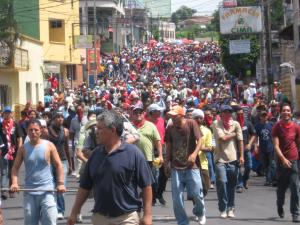

The Drug War: Policing and U.S. Militarism at Home and Abroad
Last week the Center for Constitutional Rights hosted an event titled The Drug War: Policing and U.S. Militarism at Home and Abroad. We’re joined by one of the panelists David Vivar, he’s an author and scholar at National Autonomous University of Honduras at the Faculty of Political Science and International Relations of the University of Calabria. His work focuses on the U.S. cooperation in the Honduran military coup of 2009 and the centrality of drug trafficking to state power in Honduras. What you will hear in this interview is that the U.S. Drug War has not only fueled mass incarceration and discriminatory policing practices here in the U.S. but also supports violence and militarization throughout Latin America. We get the details of that and David’s strategies to resist the racist, and devastating war.
David Vivar:
- It’s been constant that Congress asks to stop human rights violations.
- This goes all the way back to the simulation of the rule of law, to a democratic state.
- We have the highest murder rate in the whole world, and we have no war, not a consistent war declared except the war on drugs.
- We’re fighting a war that has turned the current conditions into a civil war.
- When you start having conflicts between drug lords, Mexican cartels and Colombian cartels – what do they do? They go to the space right in the middle, which is Central America and the northern triangle.
- Guatemala, Honduras and El Salvador have seen the consequences. We are the collateral damage.
- 79 percent of the cocaine that travels to the United States goes via Honduras. Basically what the Department of State is doing is investing money on kingpins and drug lords in the Honduran institutions.
- After the coup the military took back power and the U.S constantly supported this new democratic military civil alliance, which in the hand is what happened in Mexico.
- The (Honduran) military has drug lords of its own.
- Miguel Facusse is the most powerful man in Honduras. He’s got the Dinan Corporation which has African Palm plantations throughout the whole drug path.
- Basically the conflict around land is a failed agrarian reform.
- You have indigenous populations that lost their land. Their land was given to this man. The most powerful person, he gets the African Palm plantations which is the best place, as we know from wikileaks to establish small airports for aircraft to land there and deal with the drugs.
- The resistance is still in the streets against a lot of laws – the opening for business of the country – model cities and charter cities are something we’re fighting back in keeping our resources ours.
Laura Raymond:
- The U.S. did cut off military aid for a short amount of time directly after the coup but instead of backing the movement from the Honduran civil society for reinstatement of President Zelaya – throughout that summer and fall there was a huge movement, the streets were filled with people calling for the reinstatement of their president – the United States instead pushed for new elections that fall which was what ended up happening.
- The elections were heavily boycotted by civil society yet the U.S. was the primary force in the region for supporting those elections.
- After those elections took place and Pepe Lobo is elected as president, the U.S. reinstated their support for the Honduran military and police, despite massive human rights violations that were taking place on an almost daily basis.
- You really have a very close relationship between the Honduran military and police and the U.S. government and military.
- There have known to be drug planes that have landed on his property (Miguel Facusse) We know that the U.S.State Department knows about that because of wikileaks and the U.S. goes on to have this cozy relationship with him and the political arm of Honduras that he runs in.
- The World Bank continues to fund him and give him subsidies for the African Palm plantations. Where is the interest in stopping the drugs if you’re working with this person who there are drug planes landing on his property.
- He has a private army basically. He has all these private security contractors that implicated in murders. The Center for Constitutional Rights has laid those out in a report to the International Criminal Court, naming Miguel Facusse as a criminal that needs to be prosecuted.
- The U.S. depends on the Honduran government to have a very friendly government in the region. We have a lot of military presence there, we have a lot of bases. It’s a relationship that depends on the repression of civil society throughout Honduras.
- There’s a massive resistance movement that has taken a lot of repression in the last four years. What’s going on with the drug wars, its very dark and scary but the other side is this movement that David is part of.
Guest – David Vivar, is a sociologist, currently a scholarship holder from the National Autonomous University of Honduras at the Faculty of Political Science and International Relations of the University of Calabria, where he studies dependence, international asymmetry and the division between center and periphery nations. His articles and essays analyze media discourse and public opinion; the representative intermediations of Honduran democracy, the influence of U.S. cooperation in the military coup of 2009 and the centrality of drug trafficking to state power in Honduras and its inextricable relation with the neoliberal impoverishment and the ongoing usurpation of democracy.
Guest – Laura Raymond, has over fourteen years of experience organizing, writing, and advocating on social justice and human rights issues in the U.S. and internationally. Much of Laura’s work focuses on the impact of U.S. actors, corporations and government policies and practices abroad.
—–
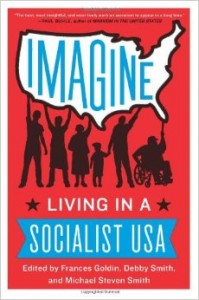
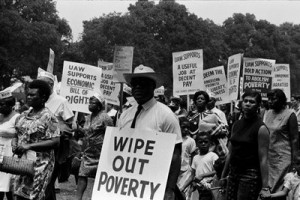
Imagine: Living In A Socialist U.S.A – Kazembe Balagune
In the past weeks we’ve featured contributors to the book Imagine: Living In A Socialist U.S.A. This book as many know was conceived and edited by Frances Goldin and our own Michael Smith with his wife Debby. We continue to discuss the essays in this ground breaking anthology. Today we speak with Kazembe Balagun, who wrote We Be Reading Marx Where We From: Socialism and the Black Freedom Struggle.
Kazembe Balagun:
- The chapter starts out with a short story on Paul Robeson at the Carnegie Hall in 1957. He sang a song called I Dreamed of Joe Hill last night.
- When we talk about Wall Street, the first commodity were Black slaves. The reason they called it Wall Street is to keep the Native Americans out.
- There’s always been an interweaving of Black freedom struggles in the socialist experience.
- One of the first socialist experiments happens in the Sea Islands of South Carolina and Georgia where General Butler issuing Article 15 calling for all land held in common for negros.
- Then you have John Brown issuing an alternative constitution of the United States which calls for all land to be held in common between blacks and whites.
- Martin Luther King Jr (in a speech said) there has to be some form of socialism in the United States in order to achieve economic democracy.
- The Poor People’s march going forward in 1968 in his fight for Memphis, these are all parallels for economic democracy.
- What we find today is that these socialist ideas are prevalent in the African-American community.
- I think there’s a way we can excavate this history for our own social movement.
- This capitalist society really has little to offer people, particularly young people of color.
- I always take into account is that there’s always been a tradition of African-American prophetic tradition which always looks beyond what’s been given to us and looks at the condition of possibility.
Guest – Kazembe Balagun, an activist and cultural organizer from the Bronx and former program director at the Brecht Forum. He is currently the project manager at the Rosa Luxemburg New York Foundation.
———————————————————
CIA Sponsored Terror, Civil Liberties, Criminalizing Dissent, FBI Intrusion, Guantanamo, Habeas Corpus, Human Rights, Political Prisoner, Prison Industry, Surveillance, Targeting Muslims, War Resister
Podcast: Play in new window | Download
Updates:
——–
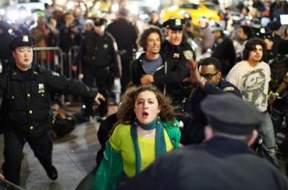
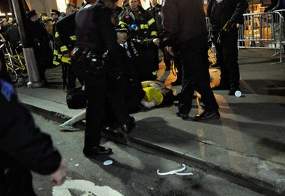
Jury Trial Begins for Occupy Wall Street’s Cecily McMillan
Cecily McMillan faces 7 years in prison after being beaten by the New York Police that left her unconscious at an event marking the 6 month anniversary of the occupation in Zuccotti Park. The Occupy Wall Street activist is charged with felony assault on a police officer a Class D felony in New York. In the course of her arrest McMillan sustained bruised ribs, a seizure and numerous cuts across her body. McMillan was a political organizer and activists speculate that’s why the prosecutor is seeking the full penalty.
Attorney Marty Stolar:
- Cecily is indicted which is somewhat unusual in the Occupy Wall Street cases. There are only 2 serious felonies that made it through the indictment process, Cecily’s is one of them.
- She’s accused of assault in the second degree. She’s accused of assaulting a police officer with intent to disrupt his ability to perform his official duties. She wacked him in the face with her elbow and left a good sized mouse under his left eye, causing him substantial pain and also to miss some work.
- The circumstances however under which she delivered the blow to his cheekbone are what the trial is about.
- Cecily is not the kind of person who would assault a police officer just for the hell of it.
- The police at midnight decided to clear the park of all the people who were there to celebrate the anniversary. Cecily was there not necessarily to celebrate the anniversary but to meet somebody to continue her pub crawling on St Patrick’s day being a McMillan when Cecily is grabbed from behind on her right breast and jerked upwards and she reacts, her arms go up in the air, her elbows go up, and that’s when her elbow and that’s when the elbow makes contact with the officer’s cheekbone.
- At that point Cecily is knocked down to the ground hits her head on the sidewalk and really has no memory of what has occurred until she wakes up somewhat later in a hospital.
- All of sudden she realizes she’s got bruises all over her body. She’s got a bruised rib, cuts all over her back, bumps on her head, she really has no idea how they occurred.
- Cecily for whatever reason was singled out to be prosecuted for a felony and they didn’t offer her a decent plea in the case.
- The officer lost a couple days of work, he was back on the job, his vision was not impaired.
Guest – Attorney Marty Stolar is a criminal defense lawyer and former president of the New York chapter of the National Lawyers Guild.
——
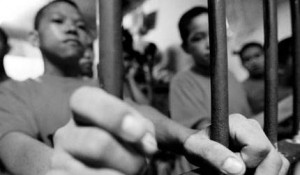
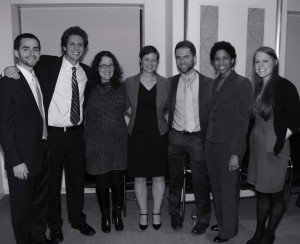
Fair Sentencing Of Youth Campaign
Here on Law and Disorder we’ve been covering the issue of children being sentenced to prison for life without parole for an offense committed during adolescence. The United States was the only country in the world to mete out life without parole to juveniles. But, in the last few years, the United States Supreme Court acted to curb the use of mandatory life sentences for juveniles. It accepted the argument that children, even those who are convicted of murder deserve a chance at redemption. However most state courts are not following the spirit of the recent Supreme Court decision. In Florida, which is the number one state that puts children in prison for life without the possibility of parole, several lawsuits have been brought accusing the state of handing out massive sentences in non-homicide cases that they basically amount to life without parole.
Jody Kent Lavy:
- The youths were involved in homicide cases, Human Rights Watch estimates that 25 percent of those individuals were convicted of felony murder meaning they were the primary perpetrator or they were there at the time the crime was committed but weren’t the trigger men.
- The majority of them 60 percent had no prior record.
- This most extreme sentence has been imposed on people we could not define as our most serious offenders.
- June of 2012 the Miller v Alabama decision was issued which struck down mandatory life without parole sentences for children.
- Each of these cases the court has relied on a growing body of research that really articulate the fundamental differences between children and adults.
- We know that the vast majority of them tend to grow out of any criminal behavior.
- The court has said we can’t impose these most extreme sentences on our children.
- The court has said that children are constitutionally different when it comes to sentencing.
- Two thirds of the people serving these sentences are concentrated in just five states.
- In Pennsylvania the state that leads the nation in this practice there are 500 serving this sentence.
- Back in the 1990s there was this theory known as the super-predator theory that there was going to be this juvenile crime wave.
- The super-predator theory has since been dis-proven by the criminologists who were even the authors.
- We now have an opportunity to be really mindful and careful about how we implement policies at the state level that hold young people accountable for serious crimes.
- Some legislatures have abolished life without parole altogether, Wyoming, Texas, Delaware among them. Some states have reacted in imposing the next available harshest sentence.
- The Mendota Juvenile Treatment Center in Wisconsin.
Guest – Jody Kent Lavy, director of the Campaign for the Fair Sentencing of Youth, the organization calls on states to reconsider mandatory terms dispensed before the Miller ruling.
——————————————————————–
CSPAN Book Club Video – Imagine: Living In A Socialist U.S.A.



![]()




















